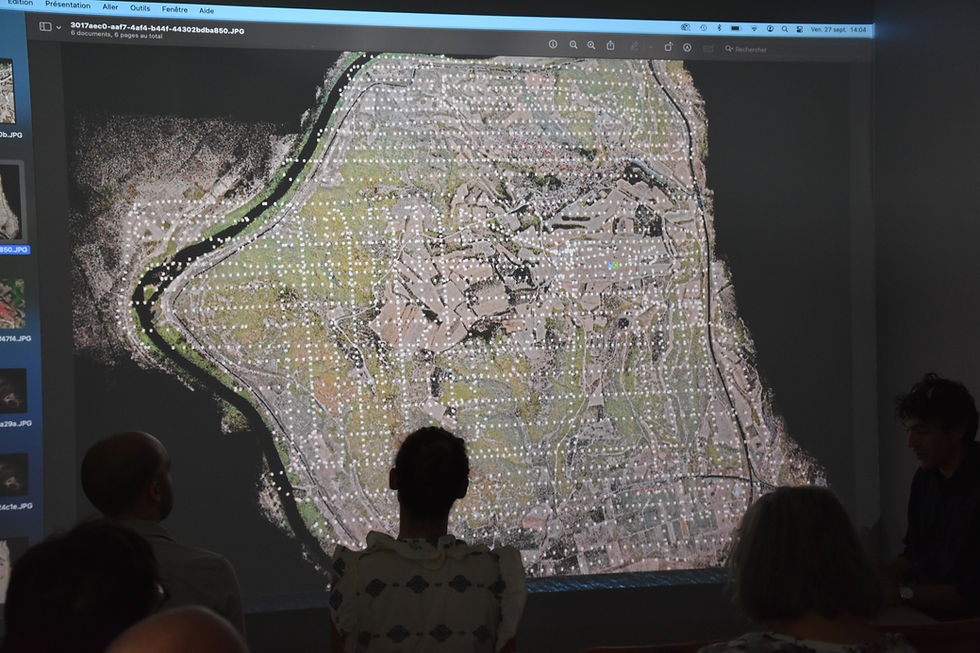Discover the PITCHER project: prevent illicit trafficking of cultural heritage through education.
- michaelculture

- Mar 12, 2024
- 3 min read

PITCHER - Preventing Illicit Trafficking of Cultural Heritage: Educational Resources
The PITCHER project intends to design and test a set of open educational resources focusing on improving the capacity of European educators in preparing innovative learning experiences to engage their students in the fight against looting and illicit trafficking of cultural goods.
PITCHER, coordinated by Bibracte - the French archaeological site, started in November 2021 and will be completed next 31 October 2024. It also includes three more cultural partners (Michael Culture, ENSP and Association Museomix) active in different domains of heritage, four schools, in Athens, Rome, La Bisbal and Navalmoral de la Mata (Spain) and two associated partners (CNRS and EfA). One of the educational materials developed by the project is based on the Red Lists of Cultural Objects at Risk developed by ICOM. PITCHER contributes to the EU action plan against trafficking in cultural goods.
PITCHER builds on the final recommendations of the European NETCHER project (Horizon 2020 2019-2021) coordinated by the French CNRS, which created a strong trans sectoral network and issued a set of recommendations on the fight against looting and trafficking of cultural goods. One of the components of the recommendations underlined the need for awareness-raising and guidance addressing the educational communities.
With this scope in mind, the main activities of PITCHER consist of designing and testing some innovative open educational resources, to be made available online to teachers and educators of all over Europe. This has been done with the final goal to:
Empower schools with tools to help their students acquire the critical thinking skills necessary to play an effective role in tackling this problem, as a young citizen and as an adult.
Create educational materials based on a STEAM approach, i.e. a combination of technical and artistic models to be used as access points for guiding student inquiry, dialogue, and critical thinking.
Use the educational potential present in European digital heritage collections (archaeological sites, museums, libraries, etc.) to help teachers develop lessons and workshops focusing on the fight against looting and illicit trafficking of cultural goods.
To achieve this goal, the project has been organised in the key phases:
1 - Create a common framework and methodology (November 2021- October 2022)
During this first year of the project, partners have built a common framework and a working methodology, thanks to the analysis of existing good practices and initiatives, the identification of case studies and several interviews with the key actors.
Focus groups have been also organised in the partner countries with relevant local stakeholders, to share and validate the results of this phase. The existing potential available in European digital cultural collections was analysed, to identify and select the most effective materials to be made available to the European schools.
2 - Develop and test Open Educational Resources (November 2022 - July 2024)
During this second phase, partners are developing the collection of Open Educational Resources (OERs) addressed to formal and non-formal learning. The courses and the related educational materials have been prepared in English in their first version, and have been translated (when necessary) and tested by the partner schools. Thanks to the feedback received from the participants to these pilot actions, the OERs will be revised and fine-tuned for their final delivery.
3 - Modelling and recommendations (April 2024 - October 2024)
Based on the results of the test phase, the training materials will be finally revised, improved and enriched with additional materials. During this phase, partners will work together to define the model of intervention and develop a series of guidelines and recommendations paving the way to a mass use of the PITCHER training model and resources at the local, regional, or even national level.
PITCHER will propose scenarios that advance the concept of 'open schooling' by building clusters of stakeholders around a creative and critical engagement of youngsters in the fight against looting and trafficking of cultural goods. This model will also involve – as a secondary target group – museum educators, memory institutions and other organisations involved in informal and non-formal educational places, such as community centres, services for youth, young offenders, etc.
Stay tuned! A series of events in the different participant’s countries is taking place this Autumn with a final event in Paris in October 2024.
More information at: https://www.pitcher-project.eu/




